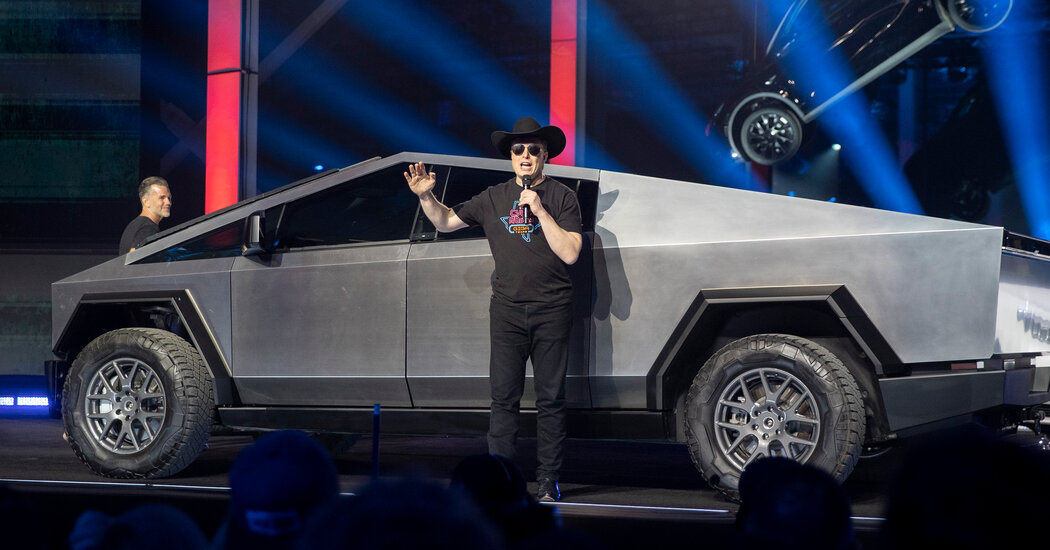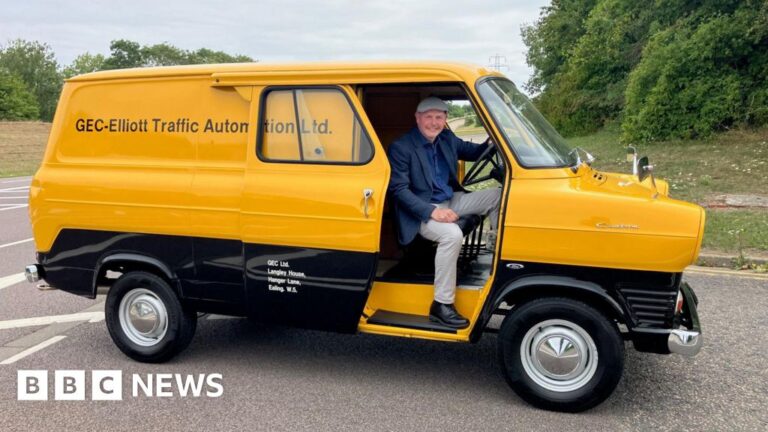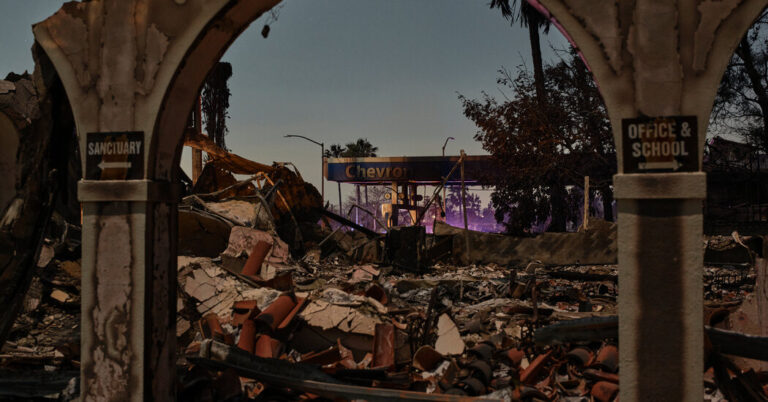Here is the plain text result:
As President Trump puts new tariffs on goods from China and threatens a trade war with allies like Mexico and Canada, one global company is likely to suffer less than most of its competitors: Tesla.
But the electric car maker led by Elon Musk, which accounts for a third of the billionaire’s wealth, is also vulnerable if relations with China worsen. That country is the company’s second-largest market after the United States and it produces more cars there than anywhere else.
Tesla has built largely self-sufficient supply chains in the United States and China, a rarity in a world of interconnected trade. As a result, the tariffs imposed by the Trump administration on Chinese goods, and the continuing threat to put them on Mexican and Canadian products, might help Tesla by hurting its competitors more.
Although there is no evidence that Mr. Musk is shaping trade policies, the tariffs are one of several measures adopted by the Trump administration that may benefit Tesla at the expense of its rivals.
The administration is also trying to eliminate financial support for the construction of fast-charging stations for electric vehicles, a move that could handicap companies seeking to compete with Tesla’s extensive network. And it is attempting to cut or eliminate loans and subsidies that competitors like Ford Motor and Rivian are using to finance electric vehicle and battery factories.
The trade war and other Trump policies also hold risks for Tesla when the company is already in crisis, with sales plummeting in China and Europe even as the overall market for electric vehicles is surging.
Mr. Musk’s extensive investments in China leave him vulnerable as trade tensions between the Chinese government and the Trump administration rise.
Tesla is already struggling in Europe and China because of competition from Chinese electric carmakers and a lack of new models. Anger over Mr. Musk’s political activities, including promotion of far-right parties, has also hurt demand in Germany, the United States, and other markets.
Tesla’s production at a factory in Shanghai was set up to be less dependent on imports than its competitors, with a battery factory in Nevada and partnerships with companies like Panasonic in Japan.
When Tesla began mass-producing electric cars at a factory in Fremont, California, in 2012, it designed a supply chain that was less dependent on imports than virtually all of its competitors. Electric vehicles were a new technology then, forcing Tesla to largely develop its own sources of batteries, motors, and other components.
Tesla built a battery factory in Nevada in partnership with Panasonic of Japan, and it remains one of just a few car companies to mass-produce batteries in the United States.
Tesla is still vulnerable to tariffs on goods from China and Mexico because a quarter of the components and materials in the car, measured by value, are imported, according to data compiled by the National Highway Traffic Safety Administration. But electric vehicles made by Tesla’s competitors are much more vulnerable to tariffs.
General Motors’ Chevrolet Equinox sport utility vehicle, for example, is made in Mexico. With a starting price of $34,000, the battery-powered Equinox is a threat to the Tesla Model Y, which starts at $45,000 before government incentives. The Trump administration’s 25 percent tariff will erase most of that advantage, assuming it stands.
The risk to Tesla in China is harder to gauge. So far, Chinese leaders appear to see Mr. Musk’s role in the Trump administration as a plus, viewing him as a potential point of contact. In January, when Han Zheng, China’s vice president, flew to Washington to attend Mr. Trump’s inauguration, he met with Mr. Musk.
China would probably think twice before targeting Tesla and Mr. Musk, said Ilaria Mazzocco, a senior fellow in Chinese business and economics at the Center for Strategic and International Studies, a Washington think tank. “China will not shoot itself in the foot,” he said. “It is the last option.”
China has so far steered clear of autos when retaliating against the Trump administration’s tariffs on Chinese goods, instead raising duties on U.S. agricultural products like chicken and wheat.
Tesla has quietly fought at least one potential tariff on Chinese materials that would have a direct impact on its competitiveness.
China is the main source of high-purity graphite, an essential material for batteries. In December, a group of companies that are trying to produce battery-grade graphite in the United States accused China of dumping and asked the U.S. International Trade Commission to impose punitive duties that could be more than 800 percent.
At a hearing on the issue in January, Tesla hired a prominent Washington law firm to argue its case, and four Tesla executives spoke. Tesla is “pushing back because they don’t see an alternative to the Chinese graphite,” said Iola Hughes, head of research at Rho Motion, which tracks the battery industry.
Last month, the trade agency said there was a “reasonable indication” that Chinese exports of graphite were harming U.S. producers. The agency has not issued a final decision. Mr. Trump’s rhetoric on trade has not included any mention of graphite.
Source link




